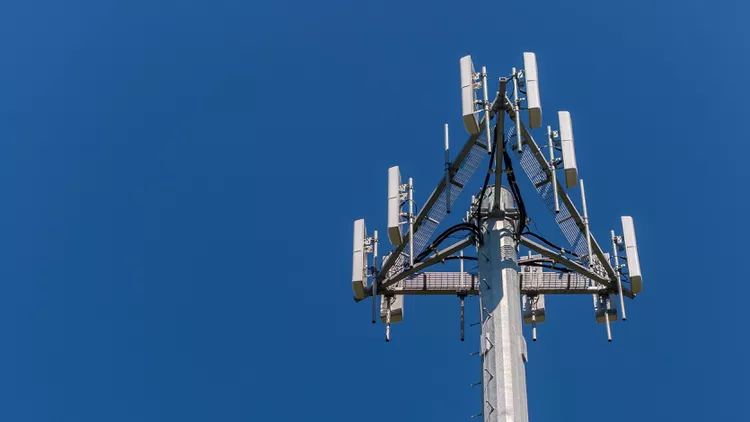Fixed wireless broadband is a high-speed internet access method that utilizes wireless radio signals rather than traditional cable connections with service providers. It typically supports speeds of up to 30 Mbps and, similar to most internet access technologies used by household consumers, usually does not enforce data caps. However, due to the involved technology, fixed wireless internet services are often more expensive than traditional technologies like DSL.

Equipment and Setup for Fixed Wireless Internet
Fixed wireless broadband services utilize transmission towers (sometimes referred to as ground stations) that communicate with each other and with users' locations. These ground stations are maintained by internet service providers, resembling mobile signal towers.
Users install transceiver equipment in their homes or buildings to communicate with fixed wireless ground stations. The transceiver comprises a small dish or rectangular antenna attached to a radio transmitter. Unlike satellite internet systems, fixed wireless antennas and radios communicate solely with ground stations and do not involve outer space.
Limitations and Advantages of Fixed Wireless
While fixed wireless broadband has its advantages, it also presents certain limitations:
- **Line-of-Sight Requirements:** The service often requires line-of-sight access between users and ground stations. Obstacles like hills or trees may hinder the signal, while adverse weather such as rain or fog can sometimes impact service quality.
- **Cost Consideration:** The cost per unit of bandwidth for users is often higher compared to other forms of broadband, which might make it relatively less cost-effective.
- **Binding Nature:** Unlike mobile internet services, fixed wireless ties each user to a physical access point and does not support roaming.
- **Latency Issues:** Fixed wireless systems typically don’t suffer from network latency issues, but some individuals wrongly confuse them with the high latency of satellite internet. In reality, fixed wireless is often used for applications requiring low network latency, such as online gaming and VoIP.
Fixed wireless broadband technology offers users a convenient high-speed internet access method. However, it comes with both technical and economic limitations. Understanding these limitations is essential when choosing an internet service provider and connectivity method. While fixed wireless isn’t universally applicable in all environments, it provides high-speed, reliable internet connectivity in certain circumstances.